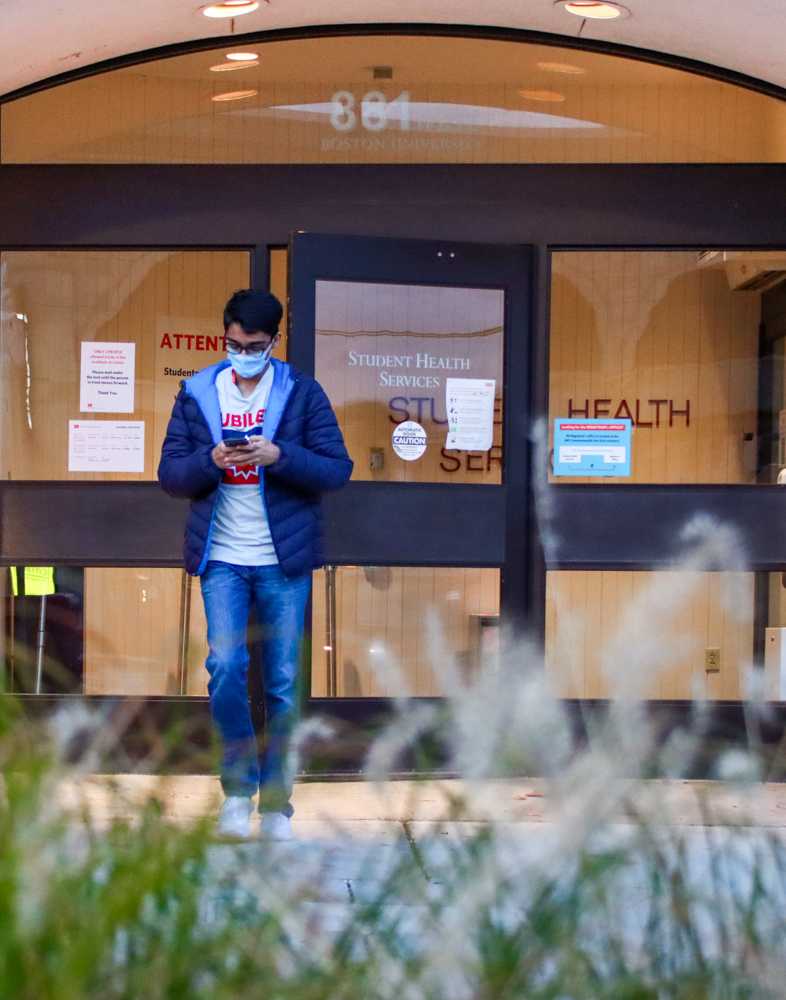
Boston University will no longer require students to get regularly tested for COVID-19 or wear masks in classroom settings, according to a letter written to the BU community by Judy Platt, chief health officer and executive director of student health services.
Platt wrote that COVID-19 PCR testing will only be available to those experiencing symptoms or who have a close contact exposure beginning Aug. 15.
Students and faculty can pick up COVID-19 testing kits at the Health Service Annex, located at the back of Agganis Arena, and drop it off from Monday to Friday from 9 a.m. to 5 p.m. The tests will need to be registered through health portals online and results will be given the following business day.
Isabelle Nguyen, a junior in the College of Engineering, said she would like to see more test sites available.
“I think that they should have more PCR tests available and better locations…If they had it at the GSU or places where students more regularly frequent…I think that would be pretty helpful,” she said.
Suffolk County had a COVID-19 possibility rate of 6% Sept. 17. The University removed their COVID-19 dashboard which displayed the number of positive cases, positivity rate and the percentage of vaccinated students, faculty and staff.
The University’s mask mandate continues to be in effect on the BU Shuttle and healthcare settings. Vaccine requirements remain the same as well, in which a primary COVID-19 vaccination series and a single booster dose is required.
BU spokesperson Colin Riley said if someone contracts COVID-19, they should isolate themselves in their residence.
“We’re not providing isolation housing,” Riley said. “Or if it’s possible, they can isolate in their permanent residence if that is nearby and they’re able to return there by private car.”
Riley said while he can’t speak for Platt, based on the current situation it is unlikely the University will bring back past policies.
“With a lot of people protected by vaccines and boosters, the severity of the illness is going to be much less or lessened,” Riley said.
Isabella Torres, a freshman in the College of Arts and Sciences, said the university needs to be prepared for a future outbreak.
“I want to be prepared and I would like for the school, if things do become serious, to be able to educate the student body and protect them in the way that they feel is necessary,” Torres said.
The letter additionally states information regarding monkeypox, which was declared a global health emergency on July 23.
Symptoms may include “fever, headache, muscle aches or backache, swollen lymph nodes, chills, and exhaustion,” Platt wrote in her letter. Rashes may occur on the body as well, and it is primarily transmitted through direct contact.
Sophie Buttery, a junior from Questrom School of Business, said she would like more transparency regarding monkeypox.
“I’d like to know if there were any monkeypox cases on campus so I can protect myself and my friends if I tested positive somehow or if somebody I knew tested positive,” Buttery said.
Riley said BU has extensive planning for emergency procedures.
“We go through every possible scenario going back decades,” Riley said. “We’ve done everything from tornadoes hurricanes, terrorist attacks, active shooting (and) pandemic.”






















































































































